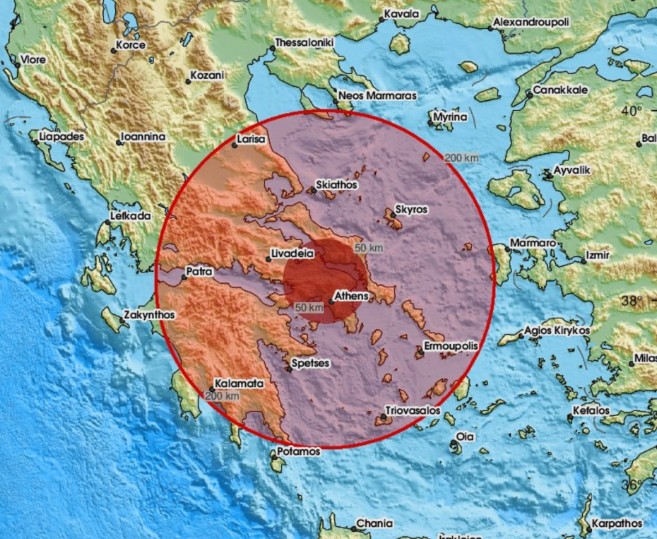Greece Earthquakes: Strong Offshore Tremor Rocks Athens and Euboea
A conspicuous earthquake measuring 5.2 in magnitude rattled the corridor of Greece late on Monday night, causing swells through Athens and near littoral municipalities.
While there are no verified casualties or damage reports so far, residents have spoken of unforeseen shocks that left numerous startled in their homes.
The earthquake struck at around 0030 original time( 2130 BST), with its epicentre just four kilometres offshore from Nea Styra, a deepwater resort on the southwest seacoast of Euboea, Greece’s alternate-largest islet, according to the Institute of Geodynamics at the National Observatory of Athens.
The earthquake’s position, roughly 45 kilometres northeast of Athens, caught many by surprise. Marathon’s mayor, Stergios Tsirkas, described the experience bluntly as “ veritably violent, ” as he told ERT TV.
His words reflected what numerous locals felt when the ground beneath them shifted without warning.
This coastal earthquake is the latest in a string of temblors that have been unsettling the Aegean and broader Mediterranean region over the once many months.
BREAKING: 5.5 EARTHQUAKE HITS GREECE, FELT IN ATHENS
A preliminary magnitude 5.5 earthquake struck the Aegean Sea at a depth of 3.3 miles.
The tremor was widely felt across Greece, including Athens, with residents reporting moderate to strong shaking.
Seismic activity… pic.twitter.com/Mb7EAwT1R4
— Mario Nawfal (@MarioNawfal) September 8, 2025
In May, Crete was hit by a much stronger 6.1 magnitude earthquake, with tremors felt all the way in Egypt and Athens.
Before this time, the stormy islet of Santorini, a favourite among excursionists, was hit by a series of unusual seismic bursts.
Thousands of residents fled their homes, only to return formerly the trouble subsided. Greece’s terrain explains much of this uneasiness.
Sitting atop several fault lines in the southeastern Mediterranean, the country is a hotspot for monumental movements.
Earthquakes, foreshocks, and stormy exertion are regular circumstances then, frequently linked to shifting plates and underlying geological instability.
The last major deadly earthquake struck the islet of Samos in October 2020. With a magnitude of seven, it tragically claimed two lives on Samos and more than 100 in Turkey’s harborage megacity of Izmir.
Authorities are keeping a close eye on developments. So far, there are no reports of collapsed structures or significant structural damage.
Exigency services remain on standby, ready to step in should foreshocks or affiliated incidents arise. Residents are being advised to stay watchful and follow recommended safety measures.
Earthquake drills, exigency accoutrements, and streamlined evacuation plans are being encouraged across the region, especially in areas known for seismic vulnerability.
Though this recent Greece earthquake didn’t cause damage, it serves as a reminder of the patient pitfalls posed by the region’s geology.
Experts say mindfulness and preparedness remain the stylish tools in minimising the impact of unexpected shocks.






